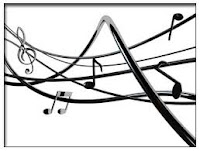All of us pianists try to play all the right notes every time, but comes the week before a performance where it's clear that no matter how much we focus, that one spot always ends up sounding like anything but music.
Here comes the most important question: should we try to hit all the notes of that spot and hope for the best, or plan ahead and take away some of the notes that are in the way?
Pieces of music are sacred, and trying to change them in any way is considered a sacrilege. Trying to play the right notes seems to be the most loyal decision, but if you know that you will play wrong notes in that one spot, isn't that knowingly changing the score?
The main goal of a performance is to bring out the musicality out of a piece. The best way to do that is to keep with the flow of the music, through phrasing, accurate rhythms, melodies and harmonies. We all know that when we try to play a spot that never comes out right, we get tense and whatever we end up playing is not musical (even if we miraculously played the right notes).
Why not take the notes that prevent us from best serving the composer out? Because the most important aspects of a piece are phrasing, rhythms, melodies and harmonies, any adjustment can be done with creativity as long as those are not changed. If the melody is in octaves with many jumps making us always play the wrong pitches, wouldn't it make more musical sense to take away the octaves and play the actual melody the composer intended? If a chord is spelled too wide for your hand, instead of playing each chord with a roll, which makes the tempo slower, increases the chances of wrong notes and changes what the composer wanted in terms of rhythm and articulation, why not reshape the chord to fit your hand?
Trying our best to play all the notes during practice is our duty. But going up on stage for a performance knowing that we will try but won't play the right notes is more of a disservice to a composer's work than if we adjust the piece to fit us in order to maintain its musical integrity.
Picture from http://brassmusician.com/wrong-notes/
1/26/2011
Subscribe to:
Post Comments (Atom)












Very thoughtful, Geraldine!
ReplyDeleteMight I add, as much as we forget this, that the composers themselves may not be very good pianists, having actually written certain things that are not technically able to be played well, unless you are an inhuman virtuso, which most of us strive to be but fall a little short. The goal of music, in my opinion, is to relay the message of the composer, and sometimes we have to sacrifice great playing for a great message, and vice versa. Keep writing!
Monica, I absolutely agree! It actually reminds me of that time I had to play a student's composition for a concert. The piece was for two pianos, and my friend and I (both finishing our doctorates at the time) could not play it at all. My husband ended up figuring out that the student had written the piece for one piano, then had copied the whole piece, and moved it a sixteenth note over, so that it looked clever and planned for two pianos!
ReplyDeleteArgh, I tried to post a comment that turned out very long, and then promptly lost it due to a dodgy internet connection. So here's my second (shorter) attempt:
ReplyDeleteI've just today discovered your blog and I'm so pleased to have found it. You are insightful, informative, and very interesting, and I look forward to discovering more gems as I read through more of your posts.
Regarding this post, I agree entirely. Artistic integrity must not be compromised for technical accuracy, which is what would happen if we all tried to play every note perfectly!
Thank you so much for your nice words! Let me know if there are any topics you would like to see more articles on! I look forward to your comments!
ReplyDelete